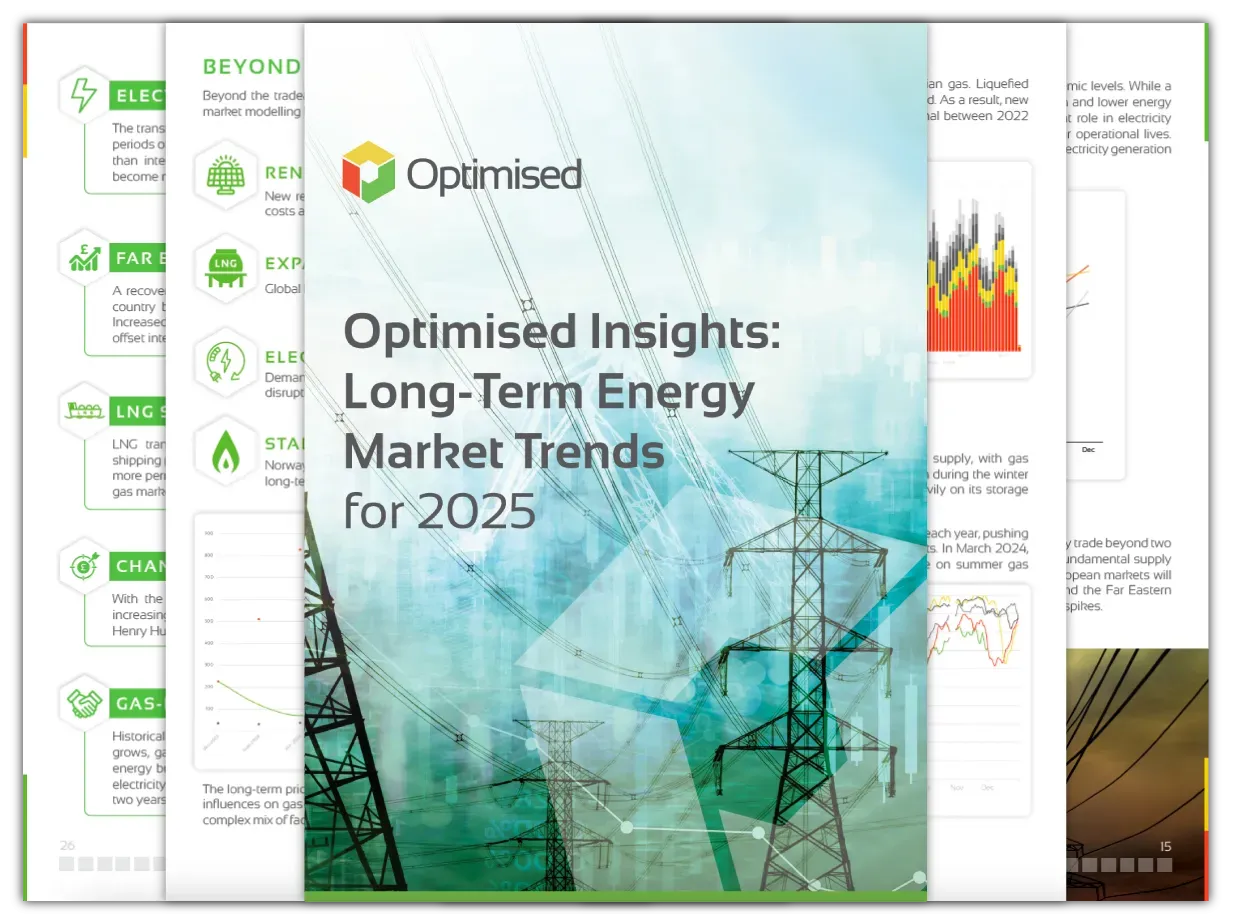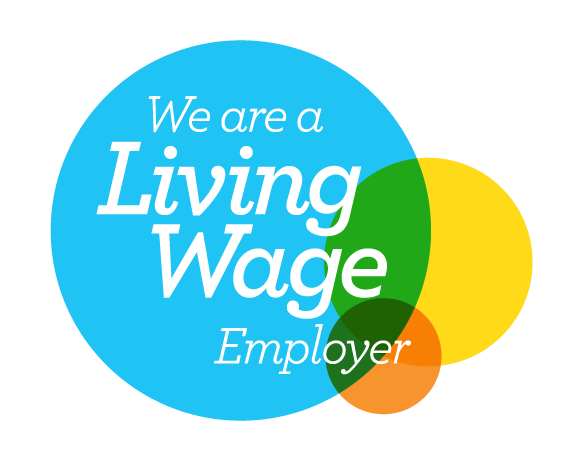An Energy Buyer’s Guide to REGOs and RGGOs in 2025
The race to decarbonise the UK energy sector continues at pace. With ambitious government targets and rising pressure from consumers and businesses, renewables are shaping the energy market more than ever before.
For energy procurers wishing to demonstrate their own use of renewable energy, renewable energy certificates have become the key currency, with market demand set to rise.
Here we examine the current Renewable Energy Guarantees of Origin (REGO) and Renewable Gas Guarantees of Origin (RGGO) markets, their role in decarbonising the UK but, most importantly, what energy buyers need to consider for their renewable energy procurement strategy in 2025.

Overview of the UK Energy Transition Plan
The UK government has set the following ambitious goals for its renewable energy transition:
-100% decarbonisation of the electricity grid by 2035.
-Quadruple offshore wind capacity to 60 GW by 2030.
-Invest significantly in solar power and battery storage systems.
Renewable energy sources like wind, solar, and bioenergy now make up a growing share of the grid. According to the National Energy System Operator (NESO), wind was the largest source of electricity generation in 2024 for the first year, and renewables generated more than 50% of UK electricity for four consecutive quarters (Q4 2023 – Q3 2024), averaging 51% in
2024
Government targets and the associated increases in supply and demand are key drivers of markets for certificates that guarantee the origin of renewable energy for energy buyers.
Renewable Energy Guarantees of Origin (REGO) and RGGO Markets
What Are REGO and RGGO Certificates?
- REGO certificates verify that electricity comes from renewable sources in order to provide transparency to both consumers and businesses. One REGO equates to one megawatt hour of renewable energy supplied to the grid.
- RGGO certificates ensure the origin of renewable gas, such as biomethane, with one certificate equivalent to a kWh of green gas delivered to the grid.
The purpose of these certificates is to demonstrate ownership for purchasers of this renewable energy for reporting purposes and to ensure that renewable energy going into the mix cannot be claimed more than once.
Why do they matter?
Within the context of the UK’s decarbonisation targets, the demand for REGOs and RGGOs further incentivises renewable power generation to drive progress on national decarbonisation.
For businesses, with complex reporting and legislative demands and their own decarbonisation targets, they provide a tangible means of demonstrating renewable energy usage. They also support a business to communicate its sustainability credentials at a time when pressure from procurement teams and consumers for green products and services is high.
Current market context
As we head into 2025, what do these markets look like? The REGO market continues to see robust demand as businesses remain under pressure to demonstrate that they are decarbonising their operations. The RGGO market is immature by comparison but rapidly gaining traction, driven by the need to decarbonise heat and to address Scope 1 emissions in hard-to-abate sectors.
Both markets are not without their challenges. The REGO market has experienced some price volatility as a consequence of rising demand, scrutiny around additionality and regulatory interventions. But with renewable energy capacity increasing, adding more certificates to the market, downward pressure has been maintained on pricing.
The RGGO market faces some challenges relating to scalability as demand outstrips Biomethane production capacity, which is currently pushing up certificate prices.
Both markets will continue to be impacted by government policies, corporate sustainability commitments and technological advancements in the coming years. A more in-depth analysis of these markets can be found in Optimised’s Long Term Energy Market Trends 2025 report.
Key considerations for energy buyers in 2025
The pressure is clearly mounting for businesses to demonstrate use of renewable energy and to decarbonise their operations. However, taking account of the current context, here are our top pieces of advice to procurers of green energy certificates this year.
1. Align your purchasing strategy with your broader sustainability goals
Organisations remain under increasing pressure when it comes to ESG reporting and buyer demands for more sustainable goods and services. Purchasing REGOs and RGGOs enables the decarbonisation of business emissions, bolstering reporting against specific frameworks, and satisfying customer demands.
However, competing demands across internal teams, as well as varying specific requirements for renewable energy across reporting frameworks, can result in misalignment. It is important that energy buyers have a good grasp of all the expectations to inform their procurement strategy.
2.Be mindful of traceability
A tradeable and trackable certificate supports transparency and accountability in sustainability communications, which is increasingly the expectation for businesses wishing to avoid reputational risks. However, there are different routes to sourcing certificates, which may enhance or hinder traceability. For example, whether you source from an energy supplier or direct from an energy generator could be significant here, and might also depend on the reporting requirements discussed above.
3. Keep abreast of the ever-evolving legislative landscape
With UK national targets come increasing mandatory compliance demands and a shifting policy landscape. This year the UK government is considering implementing zonal energy pricing which is designed for an increasingly renewable grid, but will change the energy purchasing landscape in the UK.
Outside of the UK, Europe’s Carbon Border Adjustment Mechanism (CBAM), which is due to come into full effect on 1st January 2026, could have significant impact on UK exporters. The policy is currently in a transitional phase so charges and, therefore, full implications are not yet clear, but reducing emissions via renewables is likely to be increasingly key to affected businesses.
4. Consider your strategy for cost management
Although the rapid rollout of clean technologies is resulting in the cost competitiveness of renewable energy generation, cost management for procurers is not so straight forward. Certificates do represent an additional cost and are themselves subject to price spikes and variable demand. We would recommend having a robust and flexible procurement strategy in place in order to protect from price volatility. Taking a risk management approach to purchasing will be increasingly important.
5. Third-party support can be highly valuable
Therefore, we would recommend working with a procurement specialist that can support you to manage energy and certificate market risk. They may also be able to provide direct access to energy generators and cost saving opportunities. They will certainly be able to support you to interpret the continually evolving and complex markets for renewable energy, REGOs and RGGOs, and the competing legislative and disclosure demands.
Unlock the Key Insights: Energy Market Trends for 2025
Prepare for the future with Optimised Insights: Long-Term Energy Market Trends 2025, a concise analysis of energy markets in Great Britain and Europe.
This report highlights supply, demand, regulation, and decarbonisation trends for energy buyers and decision-makers.
- Understand how global events disrupt supply chains and markets.
- Explore the rise of LNG and its impact on pricing and competition.
- Learn about GB’s 2030 renewable energy targets.
- Discover strategies to manage risks and leverage opportunities.
- Gain insights into pricing, demand, and regulatory impacts.
Embracing renewable energy is increasingly important for businesses in order to meet growing sustainability demands and to future-proof their operations. However, the renewable energy market and the associated REGO and RGGO markets are complex and at times volatile.
Those keeping abreast of what is on the horizon for the renewable energy transition and adopting more flexible procurement strategies to mitigate the risks, stand to gain the most in terms of budget protection, ESG reporting and, potentially, competitive edge.
Ready to transition to renewable energy and achieve your sustainability goals? Navigating the energy market can be overwhelming, but our energy procurement services make it simple. We leverage our industry expertise and extensive network to secure competitive energy rates and contracts tailored to your specific needs. Book a 30-minute consultation to find out more.

Article by Lewis Buxton
Head of Client Services, Renewables
Lewis Buxton is an experienced energy professional with a strong background in sales, account management, and renewable energy. As Head of Client Services – Renewables at Optimised, he plays a key role in driving Net Zero and Green Energy initiatives. Leading the Utility Management (UM) team, Lewis focuses on enhancing client experiences and improving operational efficiency, collaborating closely with teams across the business.
BOOK YOUR 30-MINUTE ENERGY MANAGEMENT CONSULTATION
Fill in your details below to arrange a complimentary consultation with one of our experts. They will give you bespoke advice to help your business achieve all its energy needs, reducing cost, consumption and carbon.










